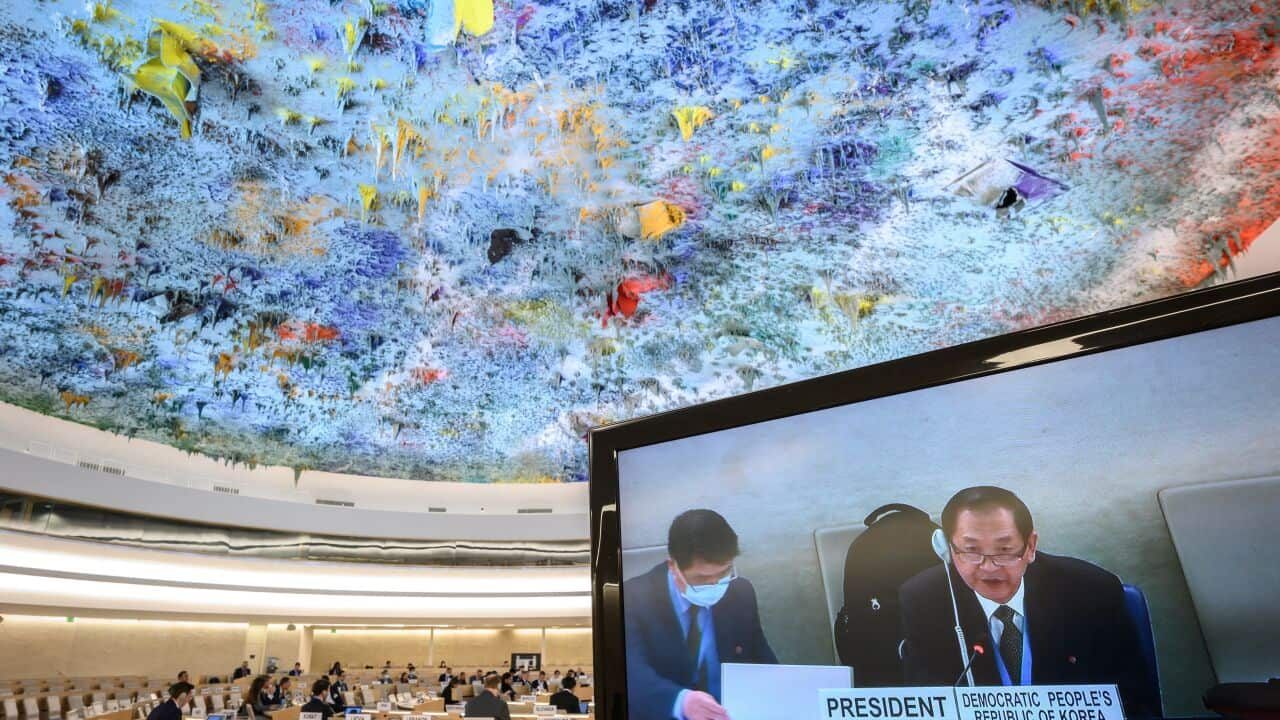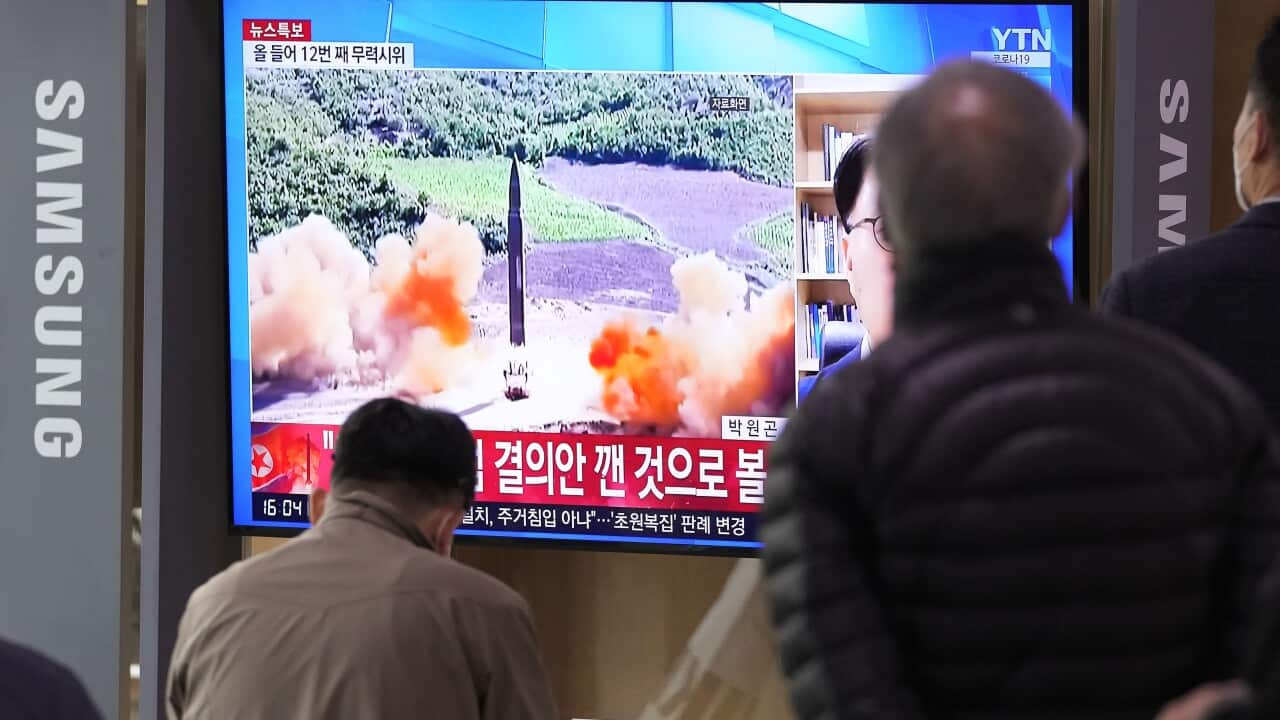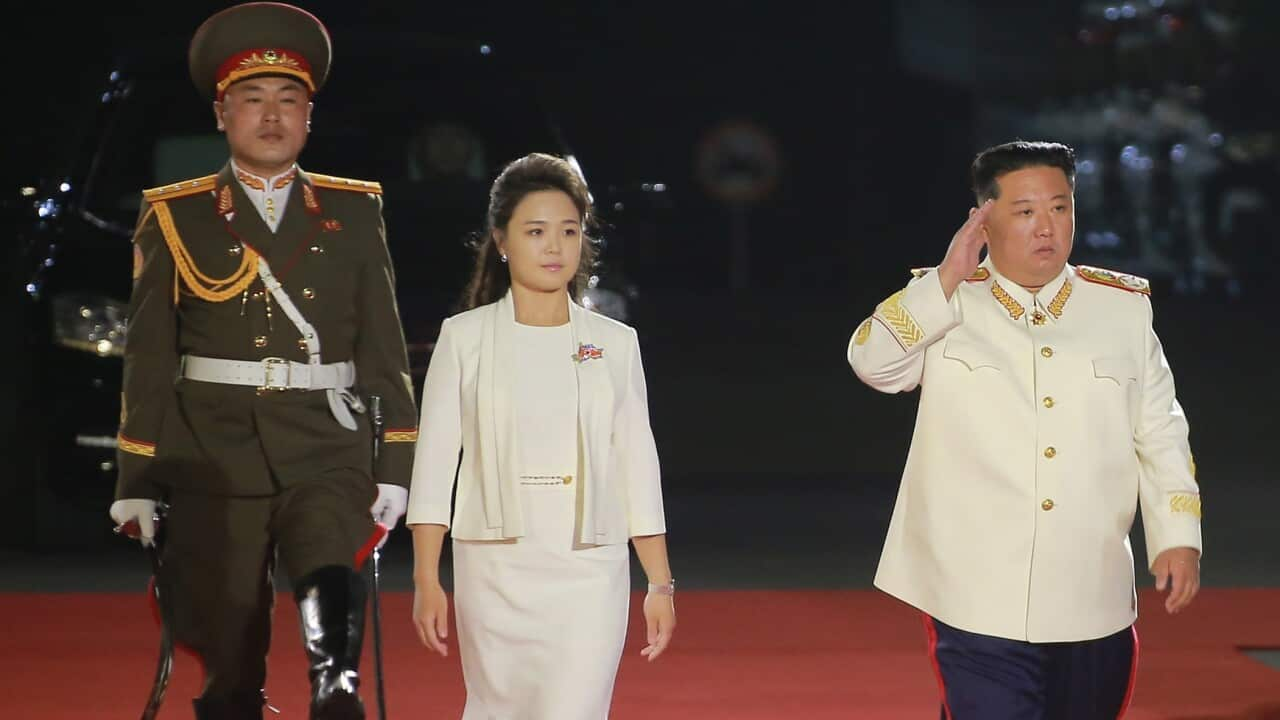North Korea on Thursday skipped the diplomatic niceties for a combative tone when it took over as head of a UN body aimed at striking disarmament deals.
"My country is still at war with the United States," declared Pyongyang's ambassador Han Tae-Song.
North Korea, which is under sanctions for developing nuclear weapons in defiance of United Nations Security Council Resolutions, has tested a flurry of ballistic missiles and appears to be preparing to conduct a new nuclear test for the first time since 2017.
It gained the presidency of the Conference on Disarmament because it rotates alphabetically among its 65 members.
"The DPRK remains committed to contributing to global peace and disarmament and attaches importance to the work of the conference," Ambassador Han told the Geneva meeting, referring to the North by its official name, the Democratic People's Republic of Korea.
He said it was an "honour and a privilege" to hold the role.
Around 50 countries voiced their outrage that unpredictable nuclear-armed North Korea is being tasked with chairing the world's foremost multilateral disarmament forum for the next three weeks.
Australia described Pyongyang's actions as "destabilising", while the United States, the European Union, Britain, and South Korea, among others, took the occasion to chastise Pyongyang over its numerous ballistic missile tests.
"We remain gravely concerned about the Democratic People's Republic of Korea's reckless actions which continue to seriously undermine the very value of the Disarmament Conference," Australian Ambassador Amanda Gorely said, speaking on behalf of the group of countries.
However, they did not heed a call to walk out of the meeting as requested by dozens of NGOs, witnesses said.
Instead, some diplomatic missions sent lower-level representatives than the ambassadors who would typically be expected to attend.
Not 'tacit consent'
The decision to remain in the room should not in any way be interpreted as "tacit consent" of North Korea's violations of international law, Ms Gorely insisted.
Pyongyang's ambassador, who opened Thursday's meeting held exceptionally in the United Nations' distinctive human rights chamber in Geneva, merely responded: "The president takes note of your statement."
The nuclear-armed state fired several missiles last week, including one thought to be its largest intercontinental ballistic missile.
The overall reaction from the floor was seen by observers as mild compared to the reaction to Syria's presidency of the same body in 2018.
During that meeting, Canada read out the testimonies of Syrian chemical attack survivors' accounts in protest.
Hillel Neuer, executive director of UN Watch, which monitors the performance of the global body, said North Korea's chairmanship would "seriously undermine the image and credibility of the United Nations".
Expectations for this series of meetings under Pyongyang's presidency were in any case low.
The Conference on Disarmament - the world's only multilateral forum for disarmament - has not reached a deal since the Comprehensive Nuclear Test Ban Treaty in 1996.
"This can only highlight the irrelevance of the CD in the current context," said Marc Finaud, an expert at the Geneva Centre for Security Policy, said of North Korea's role.
In Washington, State Department spokesman Ned Price said that North Korea's role called the UN body's utility into doubt.
"It certainly does call that into question when you have a regime like the DPRK in a senior leadership post, a regime that has done as much as any other government around the world to erode the non-proliferation norm," he said.
North Korea, one of the most militarised countries in the world, has carried out a number of missile tests since the beginning of the year.
The US and South Korea say it fired three missiles, including possibly its largest ICBM, hours after President Joe Biden closed a visit to the region late last month.
And the US and others have warned Pyongyang is preparing its first nuclear test in five years.
In Thursday's joint statement, Ms Gorely urged North Korea to "observe a moratorium on nuclear test explosions."
After repeatedly "taking note" as president of the criticism, ambassador Han took the floor in his national capacity to insist on North Korea's right to defend itself against US "threats".
Pyongyang, he pointed out, remained officially at war with the United States since the 1953 ceasefire that ended combat and split the Korean peninsula. "No country has the right to criticise or interfere in the national defence policy" of North Korea, he said.
The CD which is not a UN body but meets at UN headquarters in Geneva, is a multilateral disarmament forum that holds three sessions a year. It negotiates arms control and disarmament accords and focuses on the cessation of the nuclear arms race.













